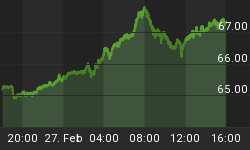An increasingly fractious maritime confrontation is developing in the South China Sea, with enormous implications for international companies interested in developing East Asia's offshore hydrocarbon resources. Far from the radars of city of London and Wall Street investors, the clash has seen Vietnam emerge as spear carrier for its fellow ASEAN members on the dispute.
Offshore drilling is the most capital-intensive form of exploiting hydrocarbons, but its expense and scarcity has also allowed technically advanced Western companies to drive hard bargains with third world countries over their offshore waters, as they don't have indigenous advanced technical resources nor finances to exploit their maritime wealth.
Accordingly, most countries attempt to procure the best bilateral deals with foreign companies to get a taste of the offshore revenues that come from exploiting their Exclusive Economic Zones (EEZs), which the 1982 United Nations Convention on the Law of the Sea (UNLOS) recognized 12 nautical miles as normal for territorial seas and waters and provided international recognition of 200 mile EEZs. On the vexed question of overlapping claims, When an overlap occurs, UNLOS deferred to the competing states to negotiate to delineate their final and actual maritime boundary, with the general principle that any point within an overlapping area defaults to the nearest state.
According to U.S. government statistics, Vietnam's oil and gas industry is currently the country's biggest foreign currency earner and a major procurer of imported technology. Since Vietnam's first oil export shipment in April 1987, crude oil has earned over $17 billion for Vietnam's economy, all of it from offshore production. Vietnam is currently Asian third largest oil producer behind Indonesia and Malaysia.
Over the past few years China has asserted its sovereign maritime claims and takeovers even as Beijing has settled most of its disputes over its land frontiers with post-Soviet Central Asian states since the early 1990s. China's expansive sovereignty claims on of South China Sea, including the Spratly (Nansha) and Paracel (Xisha) islets, putting Beijing directly in conflict with the sovereignty claims and security of five Southeast Asian states - Vietnam, the Philippines, Malaysia, Brunei and Indonesia, not to mention China's irredentist claims on Taiwan. All, except Taiwan, are members of the Association of Southeast Asian Nations or ASEAN.
Vietnam has now emerged as the plucky David challenging Beijing's Goliath. The confrontation began on 26 May when three Chinese patrol boats halted a seismic survey in Spratly waters claimed by Vietnam as part of its EEZ, 80 miles from Vietnam's coast and 375 miles south of China's Hainan Island. Following other incidents, on 13 June Vietnam's navy held live-firing exercises in an area 25 miles off central Quang Nam province after warning other vessels to steer clear.
While China has the stronger navy, both sides can currently deploy only light maritime forces, and for the moment, regional rhetoric exceeds firepower.
Besides the cover support of its ASEAN partners, China is in a dialectical trap of its own making. Asserting its unilateral sovereignty will weaken ASEAN dominated by China as a political organization and potentially drive a number of its members to closer relations with the U.S., the only significant non-Asian power in the western Pacific.
Beyond the regional posturing, the issue seems tailor-made for international arbitration. UNCLOS provides for bilateral discussions, but given the diversity of claims, ASEAN would seem to be a better forum.
In the meantime, the South China Sea hardly seems to best potential zone for foreign energy investment companies.
By. Dr. John C.K. Daly for OilPrice.com. For more information on oil prices and other commodity related topics please visit www.oilprice.com















